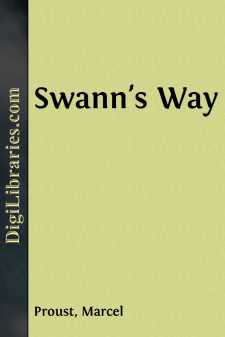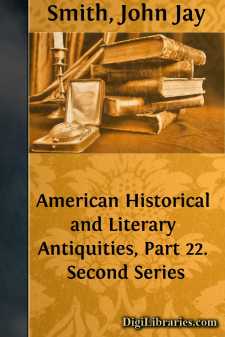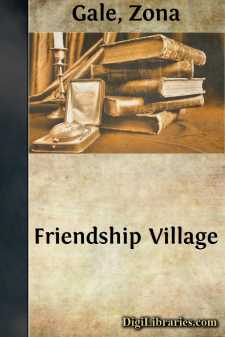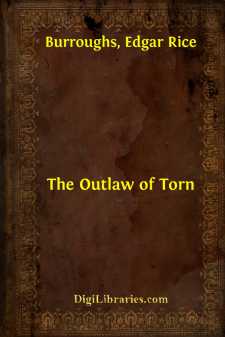Fiction
- Action & Adventure 180
- Biographical 15
- Christian 59
- Classics 6965
- Coming of Age 5
- Contemporary Women 3
- Erotica 8
- Espionage/Intrigue 12
- Fairy Tales, Folklore & Mythology 236
- Family Life 169
- Fantasy 117
- Gay 1
- General 596
- Ghost 32
- Historical 808
- Horror 43
- Humorous 160
- Jewish 25
- Legal 4
- Medical 22
- Mystery & Detective 315
- Political 49
- Psychological 41
- Religious 64
- Romance 159
- Sagas 11
- Science Fiction 730
- Sea Stories 113
- Short Stories (single author) 537
- Sports 10
- Suspense 1
- Technological 8
- Thrillers 2
- Urban Life 31
- Visionary & Metaphysical 1
- War & Military 173
- Westerns 199
Fiction Books
Sort by:
by:
Marcel Proust
OVERTURE For a long time I used to go to bed early. Sometimes, when I had put out my candle, my eyes would close so quickly that I had not even time to say "I'm going to sleep." And half an hour later the thought that it was time to go to sleep would awaken me; I would try to put away the book which, I imagined, was still in my hands, and to blow out the light; I had been thinking all the...
more...
Not So Much I evaded capture todaywith only a handful of dustto escape that Old Sandman Death. Certainly, those maroon berries,so large & luscious,crowded on their fat stemshad something to do with itas did the ground fogleaving its burrow as so many boll-weevilstheir crowded nests. And there might be something to the factthe moonlight satfat & confidant in the night skyas surelyas my head...
more...
by:
John Jay Smith
No description available
A LESSON OF PATIENCE. I WAS very unhappy, from a variety of causes, definable and undefinable. My chambermaid had been cross for a week, and, by talking to my cook, had made her dissatisfied with her place. The mother of five little children, I felt that I had a weight of care and responsibility greater than I could support. I was unequal to the task. My spirits fell under its bare contemplation. Then...
more...
Preface Last autumn, having to speak at an organ recital given by my friend Mr Clegg, I took the opportunity of giving what encouragement lay in my power, to the Corporation of my native town, in an endeavour they had made during the summer months to provide suitable music in the various parks throughout the city. To my great surprise that speech was quoted in journals, of all shades of opinion, in the...
more...
THE TRAVELS OF TWO FROGS. FORTY miles apart, as the cranes fly, stand the great cities of Ozaka and Kioto. The one is the city of canals and bridges. Its streets are full of bustling trade, and its waterways are ever alive with gondolas, shooting hither and thither like the wooden shuttles in a loom. The other is the sacred city of the Mikado's empire, girdled with green hills and a nine-fold...
more...
by:
Zona Gale
THE SIDE DOOR It is as if Friendship Village were to say:— "There is no help for it. A telephone line, antique oak chairs, kitchen cabinets, a new doctor, and the like are upon us. But we shall be mediæval directly—we and our improvements. Really, we are so now, if you know how to look." And are we not so? We are one long street, rambling from sun to sun, inheriting traits of the parent...
more...
AUSTRALIAN EXPLORATIONS. MESSRS. GREGORY'S EXPEDITION TO THE EAST AND NORTH OF SWAN RIVER. 1846. EARLY CONDITION OF WEST AUSTRALIA. The colony of Western Australia was established in 1829; but its isolation from the older settlement of New South Wales rendered it necessary to import all the horses, cattle, and sheep by sailing vessels from Tasmania, or other remote sources, while the heavy losses...
more...
CHAPTER I. HOW THE BLACK SHEEP CAME FORTH FROM THE FOLD. The great bell of Beaulieu was ringing. Far away through the forest might be heard its musical clangor and swell. Peat-cutters on Blackdown and fishers upon the Exe heard the distant throbbing rising and falling upon the sultry summer air. It was a common sound in those parts—as common as the chatter of the jays and the booming of the bittern....
more...
CHAPTER I Here is a story that has lain dormant for seven hundred years. At first it was suppressed by one of the Plantagenet kings of England. Later it was forgotten. I happened to dig it up by accident. The accident being the relationship of my wife's cousin to a certain Father Superior in a very ancient monastery in Europe. He let me pry about among a quantity of mildewed and musty manuscripts...
more...











